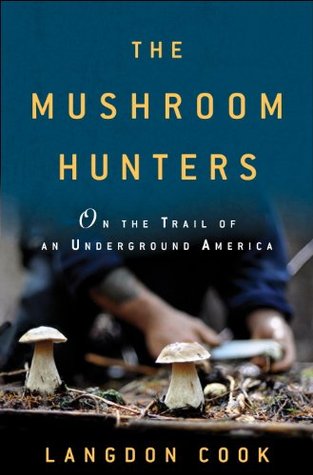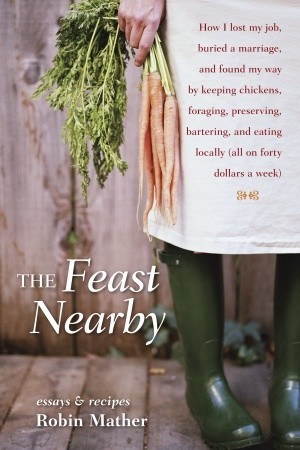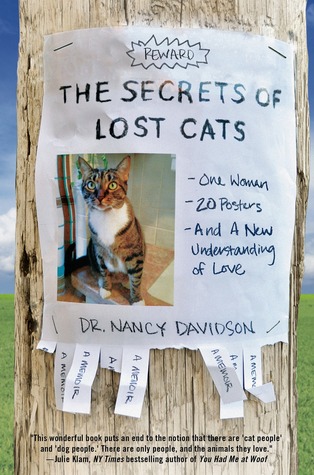I love to read and I read a wide variety of both fiction and non-fiction, but my favorite is non-fiction. So, periodically I'll read only non-fiction for a month . I decided to start 2014 off by reading only non-fiction in January. Here are my reviews (originally posted on Goodreads):
This book scared the hell out of me! In Pandora's Lunchbox Melanie Warner traces the history of processed food and why it's such a huge industry today. Some of the history seems like scientists and other food industry people were actually trying to help people by preserving food for longer, but now we basically have a big-money system that is pumping "food" full of all kinds of chemicals and processes that we have no idea how they will affect us long-term. Two of the scariest things to me were GRAS (Generally Recognized as Safe) which means companies can add whatever they want to their food if they stipulate that it's "generally recognized as safe" for human consumption instead of trying to get their additive approved by the FDA. The other scariest thing is how much soy is added to food and not just food we think of like vegetarian "meats," but also supposedly real meat - it's added to cut costs because it's cheaper to put up to 25% soy into "real" chicken nuggets than actually use 100% real meat. If this book won't inspire you cut out completely or at least cut back significantly on processed food I don't know what will! I try to eat mostly food from the farmer's market and mostly whole food that I cook myself, but this book definitely inspired to try to make my own bread from scratch after reading about all the dough conditioners that are added to even "healthy" bread. Here are some quotes I particularly enjoyed:
"As a general rule - in a universe of tens of thousands of foods, there are always exceptions - a processed food is something that could not be made, with the same ingredients, in a home kitchen. Your home kitchen." (p. xvi)
"When consumed in excess, sodium-based additives are troubling because they bypass the body's ability to detect and regulate sodium intake. Oversalt your food at home, and it's unlikely you'll be able to remain unaware. Probably you'll end up finding something else to eat." (p. 46-7)
"In fact, vitamins and minerals are so thoroughly embraced that they're the only synthetic ingredients with carte blanche approval for inclusion in certified organic products, even when those vitamins and minerals are produced with genetically modified (GM) bacteria or have been synthesized from noxious petrochemicals. GM technology and toxic chemicals are otherwise banned from organics." (p. 80) [This is why the "organic" label is virtually meaningless to me.]
"But while studies routinely show that various fruits and vegetables are effective in warding off modern ailments like cancer and heart disease, the same can't be said for synthetic vitamins. According to a whole spate of recent studies, most of which were done on pills, not fortified foods, supplemental vitamins fail to offer the health benefits we once thought they had. In some cases, taking large amounts of these compounds appears to have exactly the opposite effect, increasing your chances of getting diseases like cancer." (p. 85-6)
"There's an ocean of difference between actual fruits and vegetables and the phytochemicals that may appear one day in products at the supermarket (and that are already sold as supplements at GNC). Like vitamins, they will not be derived from their edible hosts but produced synthetically, the vastly more efficient and economical route. Most companies selling lycopene as a nutritional supplement, for instance, are making it from chemical synthesis, not prying it from tomatoes...There's no money to be made in publicizing the fact that apples are healthy, but the commercial appeal of a blueberry cereal bar with blueberry anitoxidants or a multigrain bread with anticancer wheat-bran compounds is obvious and compelling." (p. 94-5)
"Rather, it's the monumental quantities [of soybean oil] we're ingesting that distort our bodies' critical ratio of omega 6 and omega 3 fats. The ideal proportion is somewhere between one and three omega 6 fats to every one omega 3. That's roughly what it's been in most cultures throughout human history. Today the ratio in the American diet is about ten to one, and our cells are flooded with omega 6s. This dietary imbalance is thought to have a number of far-reaching implications for human health. Many in the medical community thing it is a contributor to heart disease, many forms of cancer, depression, and various other diseases that stem from inflammation. Soybeans in our diet are the primary reason for this dangerous imbalance...In a 2011 study, Joe Hibbeln of the National Institutes of Health (NIH) found linoleic acid levels (omega 6) in modern ground beef, pork, bacon, chicken, beef tallow, and lard higher than in animals raised according to practices used in 1909 - methods that Hibbeln asked Joel Salatin of Polyface Farms in Virginia to replicate for the study. They ranged from 12 percent to 40 percent higher for chicken and pork, to 200 percent and 300 percent higher for bacon and ground beef. Modern omega 3 concentrations were higher too, but not enough to offset the leaps in omega 6." (p. 141-2)
"While in St. Louis, I asked Michele Fite, Solae's vice president of global strategy, whether people might feel unhappy about soy tucked into their chicken sandwich. She had a quick answer. 'The people that are eating things like Banquet frozen meals aren't concerned about this,' she said, motioning to Orcutt's boxes." (p. 156) [Basically we make products for stupid people who don't care what they eat!]
"I was interested in the messages food companies have delivered about the basic human art of cooking over the years, and the discourse turned out to be remarkably consistent. Among the dozens of commercials I watched at the Paley Center, all of them that had something to say about cooking were tailored around a simple idea: messing around in the kitchen is a cumbersome, time-consuming chore. Why bother with such labor when drive-throughs can be visited and trays deposited into microwaves?" (p. 204)
This was a very fascinating book! The author's premise is basically to spend a year trying to be happier. This seems like a very vague idea, but she breaks it down into monthly goals and then each monthly goal has sub-goals as well. It might sound complicated, but it actually makes a lot of sense. I especially appreciated that she notes throughout the book that everyone's Happiness Project would look different - no everyone will be happy with the same things. I think that is what give a lot of appeal to this book - the fact that if I chose to do something similar it would be about what goals I wanted to focus on or things I wanted to try, not trying to do exactly what this person is telling you will make you happy. Definitely an interesting and inspiring book! Originally read Dec. 30, 2010
Re-read Jan. 9 2014 for bookclub
I still really enjoyed this book. I really enjoy Rubin's tone and style of writing. She seems like she could easily be one of your friends. She definitely inspired me to organize more and go through my closet. Here are two quotes I really enjoyed this time:
"The fact that the happiness boost that hits at the cash register isn't particularly admirable doesn't mean that it's not real - or that it doesn't shape people's behavior. Research and everyday experience show that receiving an unexpected present or being surprised by a windfall gives people a real boost; in one study, in fact, when researchers wanted to induce a good mood in their subjects to study the effects, the way they accomplished this good mood was to arrange for those subjects to find coins in a telephone booth or to be given bags of chocolate." (p. 173) [This is why finding change on the ground and saving money with coupons makes me so happy!]
"Satisficers (yes, satisficers) are those who make a decision or take action once their criteria are met. That doesn't mean they'll settle for mediocrity; their criteria can be very high, but as soon as they find the hotel, the pasta sauce, or the business card that has the qualities they want, they're satisfied. Maximizers want to make the optimal decision. Even if they see a bicycle or a backpack that meets their requirements, they can't make a decision until after they've examined every option, so they can make the best possible choice." (p. 182)
[I am a satisficer and my husband is a maximizer - he researches EVERYTHING for months before making a decision!]

The Mushroom Hunters: on the trail of an underground America by Langdon Cook
This was such an interesting book. I never knew much about mushrooms, but I think foraging for wild food is a very interesting topic. Apparently because of the nature of how mushrooms grow, most of the mushrooms used in restaurants are foraged from the wild by mushroom hunters. Langdon Cook became interested in foraging for food, but became obsessed with mushrooms. He was introduced to Doug, an experienced mushroom hunter, and Jeremy, a mushroom buyer/broker. Cook spent months with both Doug and Jeremy learning about the wild edible business. It was a fascinating look at a kind of underground industry. My only complaint was that toward the end it was a lot of the same information - just hunting different mushrooms in different woods, but very similar to a lot of the rest of the book. But, overall I really liked it and it was a very unique and interesting book.

The Feast Nearby by Robin Mather
The Feast Nearby was a quick and fun read. In 2009 Robin Mather's husband asked for a divorce and then the next week she was let go from her job as a journalist with the Chicago Tribune. She needed to completely revamp her life. Her only work was from freelance jobs, so she knew her budget had to be cut back extensively, but as a food writer she also didn't want to deprive herself of good food. Thankfully Mather shows the reader that you can eat VERY well on a budget and locally. She divides this book into 4 sections reflecting the 4 seasons of the year and after each chapter she includes a few recipes too. While, her story is inspiring - how she picked herself up and started over - some of it comes across a little too perfectly. She's broke and of course her next door neighbor has a huge garden and gives her TONS of produce - of course that happens, but not everyone would be so lucky.
I did really appreciate how she reiterated how easy cooking is - that it's not something hard and arduous, but can be very enjoyable and is usually easier than you think. She also reiterates the value of canning and preserving seasonal local produce to have it year round. Overall, I did really like this book and I want to try out a few of her recipes. It made me wish I could work from home and have more time to cook and preserve food year round.
A quote I really enjoyed:
"I guess we all define 'comfort food' a little differently, though...I mean to say that the foods you ate as a child will be the ones that comfort you as an adult. If you're raising children now, you might pause for a moment to consider that. Are your children going to become adults who think chicken McNuggets are the most comforting thing in the world?" (p. 211)

The Secrets of Lost Cats by Nancy Davidson
I thought this would be an interesting book, and parts of it were, but overall I wouldn't recommend it. After Nancy Davidson's cat Zak goes missing and she creates a lost cat poster, she can't help but notice other lost cat posters wherever she goes. She also starts collecting the lost cat posters and contacting the owners to hear their story and find out if their cat was ever found. A few of the stories are really interesting, but then a lot of the stories are sad or the owner doesn't want to talk - I guess she only included those to show the range of reactions from the pet owners. Davidson is also a therapist and so she goes into a LOT of detail about how people react to stress/loss/emotions/etc. She also goes into a LOT of her own personal history and somehow tries (not successfully in my opinion) to tie that into these lost cat stories. Overall, it was disappointing. I think the idea of following up with lost cat owners to see what happened is an interesting idea, but in this book it didn't play out too well in my opinion. I love animals, cats especially, but I wouldn't recommend this one.
She did include some helpful tips at the end of the book about finding your lost cat and what to do if you find a seemingly lost cat. She also encourages people to adopt pets through the Humane Society, which is definitely appreciate.

One Woman Farm by Jenna Woginrich
I wasn't impressed with this one. I really liked her earlier bookMade From Scratch, but I wasn't impressed with Barnheart orOne Woman Farm. One Woman Farm was more of a short diary of Woginrich's life as a "one woman farmer." Some things she wrote about were interesting, but overall it was just very over-the-top and romanticizing of the farmer's lifestyle. Don't get me wrong I think we need to move CLOSER to a smaller farm food system and I am all about growing my own food and I will probably have bees and chickens of my own one day soon, but she just went on and on and on about how great it is to get up at 5am and feed a bunch of animals and then do it all again that evening too. It almost seemed fake because it was so over the top. I guess I may have to stop reading her future books because I have not enjoyed the last two at all. I would not recommend this one.

Running Like a Girl by Alexandra Heminsley
When Alex Heminsley decided she wanted to start running she figured it would be easy. She'd been walking long distances regularly, so how hard could it be to try running? Really hard as she quickly found out. But, Alex kept at it and with the encouragement of her family and the goal of running a marathon with her brother, she succeeded in becoming a real runner. After her first marathon Alex briefly stops running, but soon realizes that it not only helps her fitness level, but also many other areas of her life. She basically says that she wrote a book she wished she would have read before starting to run. The first (larger) section of the book is Alex's journey from couch potato to runner. The second (smaller) section of the book is helpful Q&A about running, injuries, what to eat, what to wear, etc. - basically all the helpful info Alex learned the hard way. The whole book is a very honest look at how hard running can be, but also how wonderful it can be once you get past some of the earlier hurdles. I really liked this book and it's inspired me to start (trying) to run!(

